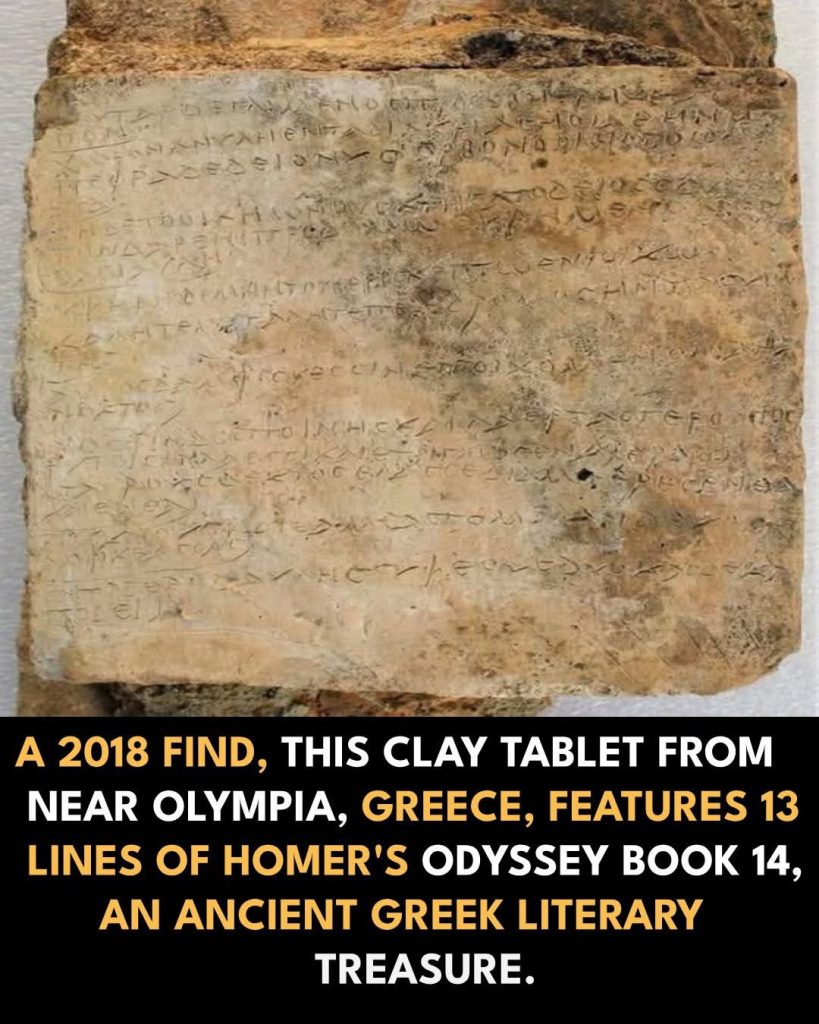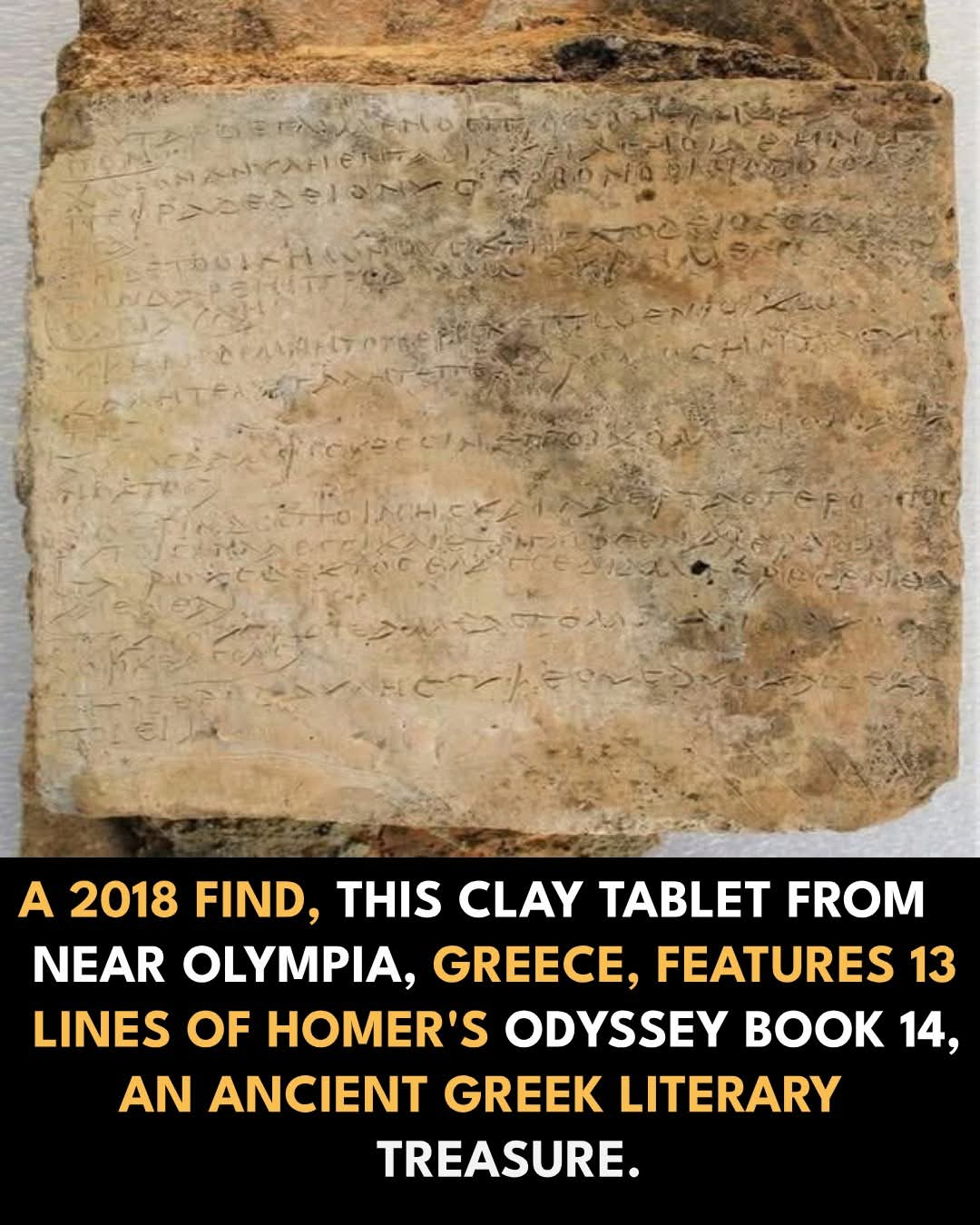One of the most remarkable archaeological finds of 2018 emerged from the cemetery of Fragkonisi near Ancient Olympia, Greece: a clay tablet inscribed with 13 lines from Homer’s Odyssey.
Now displayed at the Archaeological Museum of Olympia, the inscription stands as a rare and invaluable piece of literary and historical heritage.

The verses—taken from Book 14 of the Odyssey, which recounts Odysseus’ reunion with Eumaeus—were uncovered during surface-level surveys carried out under the research initiative “The Multidimensional Space of Olympia,” focusing on the areas surrounding the sacred site.
Scholars believe this is the earliest known physical record of these particular verses and among the oldest surviving Homeric texts discovered in Greek territory (excluding those inscribed on pottery).
This makes the artifact not only an important archaeological and epigraphic discovery but also a significant literary treasure, capturing a unique glimpse into how ancient Greeks preserved and revered their epic traditions.
